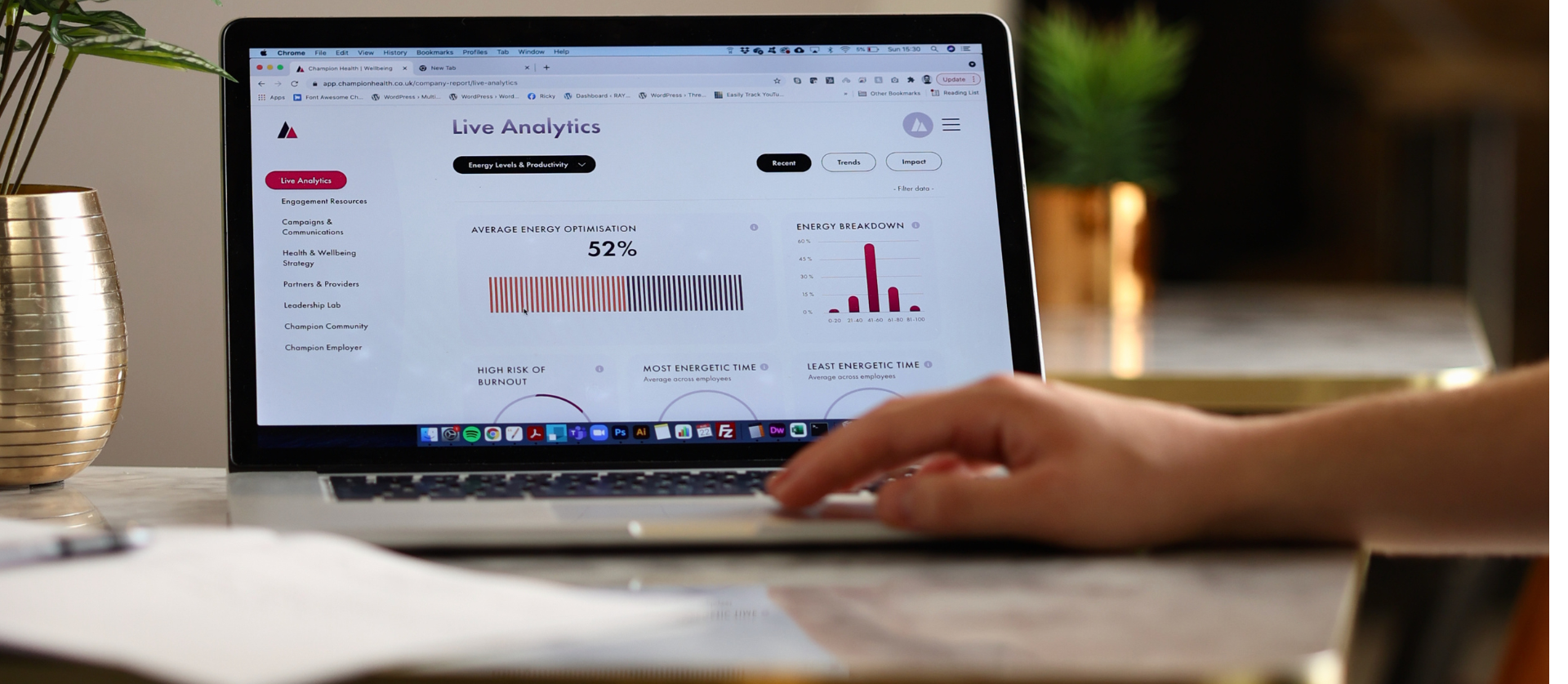Social anxiety can have a massive impact on someone’s life – especially within the workplace.
And it’s more common than you would expect. Our own workplace wellbeing data revealed that 60% of working professionals are currently experiencing symptoms of anxiety.
That’s why it’s so important that managers, leaders and HR professionals understand what social anxiety is, how it feels, and what can be done to support those with it.
In this guide you’re going to be introduced to the concept of social anxiety in the workplace, learn how to identify it and discover how to support your employees.
- What is social anxiety?
- What does social anxiety feel like?
- How to support an employee with social anxiety
What is social anxiety?
We can all feel a little anxious in social situations at times, and this is totally normal. However, social anxiety often feels more intense and distressing. As a result, it can be incredibly isolating, and lead to loneliness at work.
For some, social anxiety starts in their teenage years and is less severe as the person ages. For others, things can feel like they get worse over time.
If you have social anxiety, you may feel scared and worried before, during and after social situations. This means it can totally take over your life, affecting relationships, work, and how you feel about yourself.
It can leave someone feeling isolated, even when they’re surrounded by people, like their colleagues or friends.
What does social anxiety feel like?
To better support your colleagues or team members, it’s important that you can empathise with how they’re feeling. The first step is to understand how social anxiety feels.
Social anxiety can vary between people, as we’re all different and worry about different things. However, people commonly report worrying about meeting new people, fearing judgement and feeling like everyone is watching them.
These worries often mean that people avoid being in social situations, which can then make them feel bad about themselves and only add to the desire of avoiding contact with others.
It’s also very common to experience physical sensations with social anxiety too.
These can involve sweating, feeling sick, and an increased heart rate. Some people also experience panic attacks that can be extremely overwhelming and scary.
And if someone suffers from a panic attack in a social – or professional – situation, this can understandably make them more fearful of being in a situation like that again.
Read our in-depth guide to understand more about how to support colleagues that experience panic attacks at work.
Avoidance of social situations is normal to those suffering with social anxiety. However, it can actually make things worse in the long run.
People often experience other difficulties alongside the social anxiety too, such as depression. It can leave people feeling like they’re not “normal” and isolate them further, which can be highly damaging for long-term mental health.
How to support an employee with social anxiety
There are many ways to support an employee or team member suffering from social anxiety – and as you’ll learn, simply starting the conversation can be the best thing to do.
Below, you’ll discover some pointers and learn how to support an employee with social anxiety.
1. Start the conversation
You may be a manager, leader or HR manager. You’re concerned about one of your employees. Should you bring up the behaviours you’re noticing?
Starting the conversation – or knowing if it’s even appropriate to do that – is often the toughest part of supporting someone with social anxiety.
One rule is to only start a discussion if the person’s social anxiety is getting in the way of their career or is negatively impacting themselves or others.
That said, it’s important you can be empathetic to each other’s differences. Some may enjoy working in silence or recharging by taking their lunch breaks alone – these are not reasons to start that conversation.
But if you do think that a person’s social anxiety is getting in the way of their performance or happiness, connect with them by starting the conversation.
For a step-by-step guide on how to best approach that conversation, read our guide on the CLASS Approach to supporting others.
It’s worth remembering that in some situations, people will not want to talk about it – and that’s fine, you can’t force them to speak about anything they don’t want to.
Instead, you’ve ‘left the door open’ for them, so they can come back to you if they want to in the future.
2. Be their champion
If an employee does confirm they have social anxiety, you may feel like you should protect them by giving them permission to avoid the situations that cause their anxiety.
This is certainly useful in the short-term, but for them to grow and start overcoming that anxiety, you should be aiming to collaborate and set goals.
With social anxiety maintained through avoidance of specific activities, supporting your employee to face their fears at their own pace is a more productive approach to simply opting out of them.
Consider asking questions like:
- Where are you currently and where do you want to be?
- What can we do together to help you achieve your goals?
- What challenges would you like to take on?
Ultimately, your role as a manager is to support them in a collaborative way. Avoid giving them tasks that only you think are in their best interests without first having a back-and-forth discussion.
3. Set clear roles and expectations
Anxiety is driven by uncertainty, so minimising that as much as you can is key. That’s why, for socially anxious employees, setting clear roles and expectations can be an effective route to supporting them.
For example, activities like appearing on panel sessions can be daunting because they lack structure, whereas that same person might excel delivering pre-scripted interviews.
By matching them with structured tasks that have clear roles, you allow them to shine to the best of their abilities.
For example, if your employee is concerned about attending a conference, give them a clear role and expectation, like: “You’re here to learn about our industry. Do this by talking to six competitors and note down three examples of best practice from them.”
When asking for company-wide feedback at large events, like all-hands meetings, give everyone the chance to provide their feedback via a different channel afterwards. People with social anxiety are unlikely to chip-in in front of a large audience without first having the opportunity to think through their responses.
4. Help them manage perfectionism
Social anxiety is often twinned with perfectionist tendencies.
This can commonly manifest itself within time management and prioritisation, wherein your colleague may spend too much of their time procrastinating or polishing their work.
So, how do you help overcome this? Try establishing benchmarks, giving your team member guidelines for the tasks you set them.
For example, this could take the form of time limits on writing tasks. For example, you could stipulate that a report should take no longer than 4-hours to produce and should fit on just one side of paper.
With perfectionists often working harder and longer, often at a detriment to their own wellbeing, it’s crucial you can support them before that employee becomes burned out.
If you’re concerned an employee is not taking care of themselves, encourage them to take care of themselves by recharging, using their vacation time, and working at a more realistic and sustainable pace.
Again, if you’re not sure how to approach this tricky conversation, take a look at the CLASS Approach to supporting others that we referenced above.
5. Provide meaningful praise
People with social anxiety are often self-critical, focusing on perceived shortcomings and overlooking their contributions within the workplace.
Be sure to regularly reinforce their positive contributions by praising their efforts; try reading this great guide from Harvard Business Review for some important pointers.
We never know what someone is going through
We don’t always know what someone else is going through, so as human beings, it’s always important to remember this and aim to be empathetic with each other.
Colleagues, friends and family who experience social anxiety often care greatly about other people, and every workplace can benefit from that.





